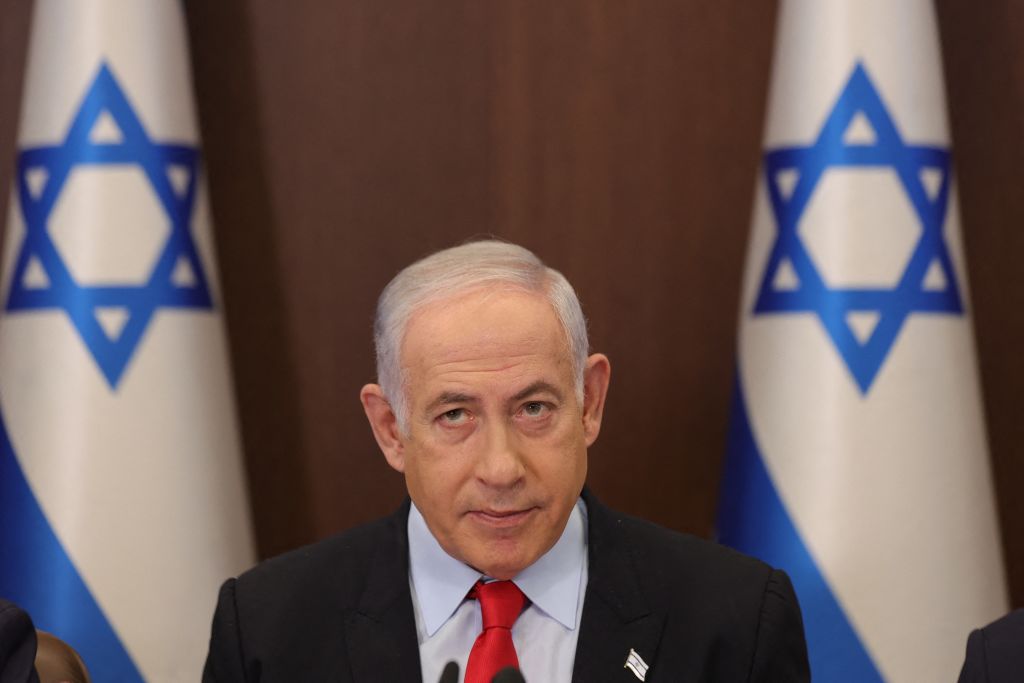Israel’s chief of military intelligence has done something remarkable for a contemporary public figure: he has resigned for failing to adequately do his duty. Major General Aharon Haliva announced his resignation yesterday, saying he took full responsibility for the failures which led up to Hamas’s 7 October attack on Israel.
On one level, this was surely inevitable. The 7 October atrocities constituted the worst single assault on Israel in its history and the biggest killing of Jews since the Holocaust. Haliva’s culpability — and it is far from his alone — is undoubted.
The more time passes the more it becomes clearer that, for whatever reason, senior Israeli military and intelligence officials missed — or perhaps more accurately ignored — multiple warning signs, and indeed warnings, of what was coming.
And that was just beforehand. When the attacks happened, it took the IDF several hours to respond — this in a country so small that it can be crossed lengthways in half a day. The failures are egregious and manifold. Surely, there should now be a reckoning.
But many Israelis I speak to are not certain it will come. Israel’s government is egregiously dysfunctional and led by a megalomaniac who was happy to tear the country apart so he could stay in power. Benjamin Netanyahu has brought genuine extremists into his cabinet, such as National Security Minister Itamar Ben-Gvir, and is so terrified of losing their support — and with it the coalition that keeps him as prime minister — that good governance is effectively subordinated to their will.
After the war is finished, or at least declared finished, or the violence finally just ebbs away, there will be a colossal inquiry into all of this. Beyond Haliva, the heads of the IDF and Shin Bet, the country’s internal security service, will both have serious questions to face. Both accepted responsibility soon after 7 October, but will stay in place until the end of the war. Then there is the man who, as national leader, bears ultimate responsibility: Netanyahu.
The 1973 Yom Kippur War began when a series of Arab armies launched a surprise attack on Israel, following warning signs which were either missed or ignored. Afterwards, an inquiry duly came. The result was that Israel’s then Prime Minister Golda Meir and Minister of Defence Moshe Dayan both resigned. Meir’s political life was thus finished, though Dayan would go on to help negotiate the 1979 Peace Accords with Egypt.
Some argue that the same fate awaits Netanyahu, but they miss a key fact. Meir was not ordered to resign — indeed, the inquiry had no such powers. She did so because she felt that after its findings she had no choice. She resigned because she had shame.
Of all Netanyahu’s talents — and he has frequently proved his worth as a masterful politician, as even his many enemies acknowledge — perhaps his greatest gift is for shamelessness. Combine that with a coalition of hardliners who care only about advancing their religious and hyper-national goals, and the pressure to do the right thing may well be pretty much absent.
If 7 October was a referendum on Israel’s security then its aftermath will be one on the country’s political health. If Netanyahu defies all political norms and hangs on, then the country is in far more danger than it appears, even now.











Join the discussion
Join like minded readers that support our journalism by becoming a paid subscriber
To join the discussion in the comments, become a paid subscriber.
Join like minded readers that support our journalism, read unlimited articles and enjoy other subscriber-only benefits.
Subscribe